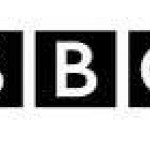- Industry: Broadcasting & receiving
- Number of terms: 5074
- Number of blossaries: 1
- Company Profile:
The largest broadcasting organisation in the world.
Mercury (chemical symbol Hg) is a metal that is liquid at standard temperature and pressure. It is used in the manufacture of low-energy lightbulbs (CFLs and other fluorescent lights), and extra care must be taken in their disposal, especially when they are broken, because of mercury's toxicity.
Industry:Natural environment
Methane is a hydrocarbon, the main component of natural gas and among the six greenhouse gases to be curbed under the Kyoto protocol. As a greenhouse gas it is estimated to have a warming effect about 25 times as great as CO2. (Compared to CO2 its effects are greater but last for a shorter period). As a fuel, it is used in electricity generation and in the form of compressed natural gas it can be used as vehicle fuel. Methane is produced during the decomposition of many materials in landfill, while about 16% of methane emissions are caused by livestock's digestive processes.
Industry:Natural environment
Microgeneration is small-scale home production of electricity and heat using technology that produces little or no CO2. Common examples include ground source heat pumps, solar panels and wind turbines. Where successful, people can meet their own energy needs and also sell excess energy back to the grid.
Industry:Natural environment
Mineral wool refers to any of several lightweight, fibrous materials used as insulation and created by blowing air or steam through molten blast-furnace slag (slag wool), molten rock (rock wool) or molten glass (glass wool). Definitions vary, but fibreglass is sometimes referred to as a mineral wool.
Industry:Natural environment
Action that will reduce man-made climate change. This includes action to reduce greenhouse gas emissions or absorb greenhouse gases in the atmosphere.
Industry:Natural environment
Monoculture is the practice of planting a single crop, or genetically similar crops, over a wide area. Its advantages to growers are that the crop may thrive in conditions tailored to its success and without competition from other species. However, the practice will also reduce the region's biodiversity by limiting the number of other species for which it is a suitable habitat. Scientists warn that extensive forest clearance to make way for widespread growth of crops such as sugarcane to create biofuels is creating a monoculture harmful to biodiversity. The opposite of a monoculture is a polyculture.
Industry:Natural environment
The natural level of greenhouse gases in our atmosphere, which keeps the planet about 30C warmer than it would otherwise be - essential for life as we know it. Water vapour is the most important component of the natural greenhouse effect.
Industry:Natural environment
Nitrogen oxides are compounds of nitrogen and oxygen, two elements that do not normally react with each other but will do so during high temperature combustion – such as in a car engine. Examples include nitric oxide (NO) and nitrogen dioxide (NO2), which contribute to air pollution, and nitrous oxide (N2O), which is a major greenhouse gas. Although its warming effect is far less than CO2, it persists in the atmosphere for far longer, so measured over 100 years its impact is 298 times greater.
Industry:Natural environment
Offsetting, or carbon offsetting, refers to the (highly contentious) principle that a company or individual can mitigate or even entirely neutralise the effects of their CO2 emissions by investing in programmes that promote energy-efficiency or CO2 absorption, such as providing low-energy lightbulbs or planting trees.
Industry:Natural environment
ミネラル ウール断熱材として使用され、吹く空気または蒸気を介して溶融高炉スラグ (スラグウール)、溶融岩 (岩綿) または溶融ガラス (ガラス ウール) によって作成されたいくつかの軽量、繊維状の材料を指します。定義が変わるが、ガラス繊維もミネラル ウールと呼ばれています。
Industry:Natural environment
